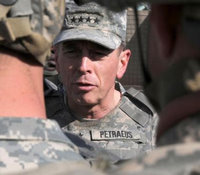Internecine ideological battles have bedeviled the foreign policy of every U.S. administration in recent memory. Human rights liberals fought unsuccessfully with Cold Warriors for control of the Carter administration. New-right hardliners initially won the war for Ronald Reagan's foreign policy soul but then lost it to George Schultz's old-guard Republican realists. The Clinton administration became an altar on which liberal interventionists exorcised the Democratic Party's Vietnam Syndrome demons. Most bitterly and most tragically, the first term of George W. Bush's presidency demonstrated what happens when neoconservatives and their allies win more ideological contests than they lose. Barack Obama's young presidency is already remarkable in many ways. One of the least remarked upon, however, is the absence of clear internecine ideological combat. The Obama administration has no shortage of internal divisions, even when it comes to foreign policy. For instance, several young foreign-policy scholars who signed on with Obama's campaign when he was an underdog for the Democratic presidential nomination expressed bewilderment and disappointment at the subsequent nomination of Hillary Rodham Clinton as Secretary of State after Obama's election victory. Clinton's arrival at the State Department became a vehicle for Clintonites to exact revenge for the protracted primary battle by denying candidate Obama's policy advisers the jobs they expected to have once he became president. But this has primarily been a political battle, not an ideological one. The Clintonites might be more establishment-minded than their progressive Obama-centric counterparts, but they're also more technocrats than reactionaries. Yet there is one faction within the Obama administration that deserves special attention, even if it recognizes itself more as a community of interest than a discrete ideology. Emanating from the Pentagon, a generation of theorist-practitioners of counterinsurgency warfare has emerged to reach a new height of influence in the shaping of American foreign policy. In the Bush administration and before, this group was a small band of dissenters, particularly within the Army and Marine Corps that nurtured many of them. Even after the troop surge in Iraq in 2007 introduced many in the United States to theories of "population-centric" war-fighting, few of the doctrine's proponents reached positions of prominence in either the administration that launched the surge or the 2008 presidential campaign of the Republican candidate, Sen. John McCain, who embraced it. In a remarkable turn of events, it is the administration of a progressive Democrat that has elevated this group of defense theorists, many of whom are Iraq and Afghanistan veterans, and embraced their theories of warfare.
Counterinsurgents in the Halls of Power

